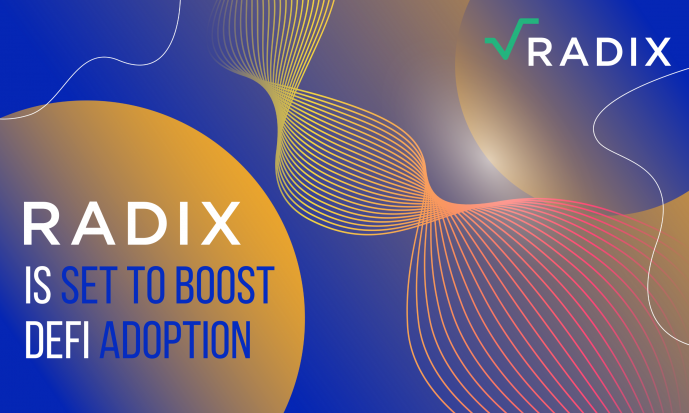Radix is set to boost DeFi Adoption

What a year it has been so far for crypto. After the markets for digital assets crashed alongside nearly every other asset class on Earth, and after a quick recovery as Bitcoin’s third halving approached, as well as the first steps of the Ethereum 2.0 rollout drawing closer, Decentralized Finance has since become the talk of the crypto world.
At the moment, DeFiPulse reports that over 3.6 billion US Dollars are locked in DeFi smart contracts, which is a four-fold increase over the last 90 days. In the same breath, the governance tokens issued by DeFi platforms have sharply risen in trading value. The latest example of this was yearn.finance, which saw the price of its token increase by a factor of almost one hundred since it was first listed on Uniswap two weeks ago.
The reason why yield farming platforms like yearn are gaining importance is because DeFi investment strategies are becoming more complex, as a result of platforms incentivizing their usage with governance tokens. When you use their products, you earn an additional yield in the form of governance tokens, which you can either trade in at an exchange, or keep if you want to have a say on the politics of the platform, such as voting on improvement protocols.
As a result, there is now an incentive to combine DeFi platforms to earn multiple tokens at once. Yearn describes such an investment strategy in one of their medium posts:
“Supply DAI to compound, deposit cDAI into Balancer. Earning COMP on the DAI and BAL on the cDAI lending interest on the DAI and trading fees on Balancer pool.”
All of these activities result in an increasing number of transactions on an already overcrowded Ethereum blockchain, causing transaction fees to spike. This opens the door to Radix, an alternative smart contract platform built specifically for DeFi products.
Powered by their proprietary Cerberus BFT consensus algorithm, Radix wants to launch a parallelized and sharded Proof of Stake blockchain network. Their mainnet, called Radix Public Network 1 (RPN-1), will be released in four iterations (“drops”). Further drops will increase the number of validators and bring more functionality to the network, such as Sybil resistant staking with fees and rewards. Ultimately, the development of RPN-1 will be concluded with the release of a token explorer and token vesting functionality.
This final step of the rollout will also serve as a basis for the token sale of the native XRD token, which will be used for staking on Radix. The token sale is set to take place in September 2020 and will be conducted in cooperation with the platform’s custodial partner, Copper. In this partnership, Copper will distribute the ERC-20 token that serves as a placeholder, until the RPN-1 is finalized.
Their ambitious development efforts have been made possible through investments by several well-known VC companies, including LocalGlobe, Taavet Hinrikus, XSquared, and Maven 11. Additionally, Radix has an academic partnership with ExpoLabs. The blockchain initiative led by Prof. Mohammad Sadoghi has extensively tested the validity and scalability of the Cerberus BFT algorithm earlier this year.
Radix itself is led by Piers Ridyard, Dan Hughes, and Albert Casillana, who all have prior experience in enterprise-grade blockchain technology. Backed by several VC powerhouses, they are building a highly scalable blockchain network optimized for DeFi products. By improving the transaction capacity of distributed ledgers and making it much easier to develop DeFi apps on their platform, Radix can provide a huge boost to the adoption of Decentralized Finance technology.